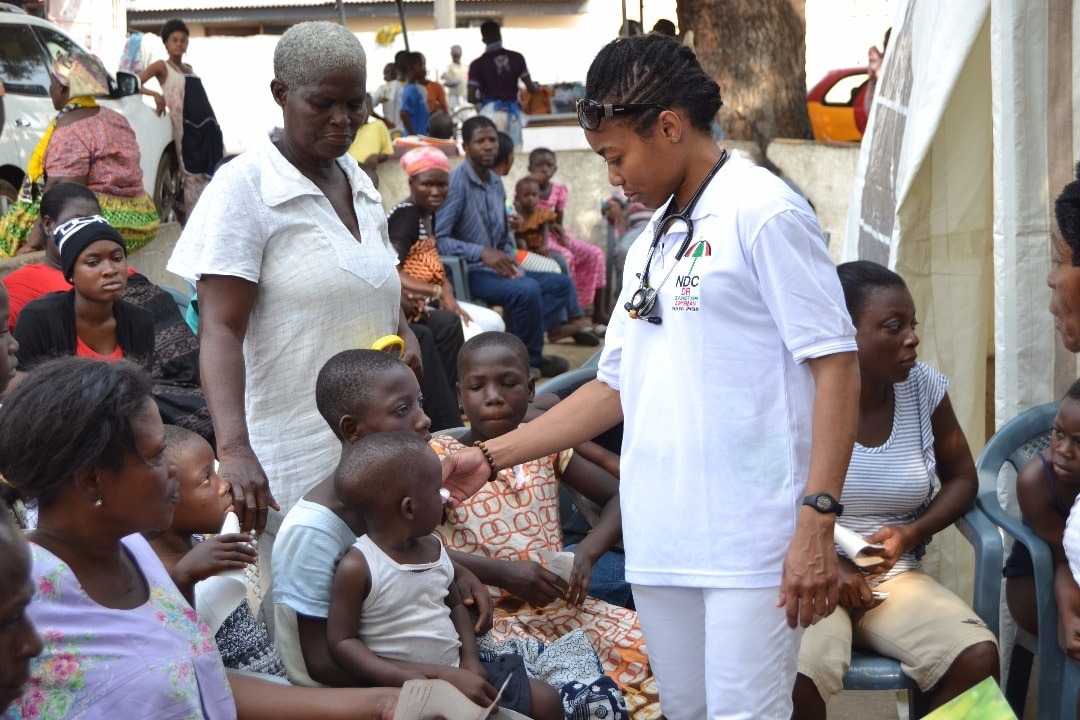Statement On The Importance Of Cybersecurity And Data Protection Within Context Of Our National Security By Dr. Zanetor Agyeman-Rawlings, Honourable Member Of Parliament For Klottey-Korle Constituency
Thank you, Mr Speaker for the opportunity to make a statement on the importance of cybersecurity and data protection within the context of Ghana’s National Security Architecture.
Traditionally, National Security was limited to our airspace, waterbodies, land and all that exists within our territorial boundaries, but with the advances in technology this has expanded to include cyberspace as well.
Historically, cybersecurity was the preserve of academia, but with the increase access to the internet and smart device penetration, the need for increased awareness and capacity building has become a necessity. Some examples are cyber fraud, online romance scams, money laundering and cyber-attacks on financial institutions (phishing and ransomware, for example), most of which have occurred in Ghana on some level.

The emerging threats on the African continent, and more specifically, the West-African sub-region puts the onus of increased attention to cybersecurity and warfare on our respective states. The cooperation and collaboration between the Intelligence agencies in the sub-region and beyond has become even more crucial now as violent extremism, and transnational crime can all be funded and manipulated via cyberspace. In many ways, cyberspace rather than outer space is the new frontier of most of our emerging threats. The State now has an increased responsibility to develop information technology-based strategies in a bid to protect our national interests and ensure stability, peace, security and sustainable development.
Globally, information and communication technologies are the basis of several innovations and social media networks that are affecting societies and governments, industries, and individuals. So, ICT does present a brilliant opportunity for development across various sectors of our economy. However, there is a very real threat that cyber technology presents which is evolving at such a fast pace that countries that are unable to build capacity in their technology and human resource to adequately bolster their cybersecurity are simply leaving themselves exposed to attacks on all spheres of life from criminals who have emerged with the new forms of technology.
Issues that arise from the use of these technologies
Some examples of issues that arise from the use of these technologies range from hacking of people’s email accounts, blackmail and cyber bullying as well as data theft. As a result, it is incumbent on the state to take steps to ensure its national security and the personal security of its citizens are protected.
The point of contact of any cyber related breach is a personal device and in an era of high mobile penetration, the mobile phone is the potential Achilles heel. In Ghana, over 50% of the population owns a smart communication device, which are entry points to the threat Ghana faces as far as data security and protection are concerned. It is imperative that National Security adopts an approach that creates the necessary awareness for end users such as the market woman or uber driver or even member of parliament in our case.
As the drive continues towards the introduction of various digital systems to enhance our tax collection, financials, payroll, banking transactions, health, communication and general data storage and preservation, it is crucial that the relevant cybersecurity systems are put in place concurrently. Mr Speaker, it is reckless to transfer all our data onto digital platform while we do not have the capacity to adequately protect ourselves from cyber-attacks.
There is an urgent need to integrate some into the agencies that are traditionally charged with the defence and security of the country. Cyber Defence falls within the remit of the Ghana Armed Forces, and it is imperative that the digitization processes include adequate capacity building within the various security and intelligence agencies as a matter of urgency to ensure that our data is well protected and to give other countries with whom we cooperate on matters of security and intelligence the reassurance that the data they share with Ghana will be adequately protected.
There is a deficit of three million cyber security experts globally, which means there is a job market for such persons. Mr. Speaker as we lament about the teeming unemployed youths, we could also streamline our career counselling and educational institutions to do a constant sweep of the jobs market in order to correctly assign places for specific courses to ensure that graduates have better opportunities for employment in Ghana and abroad (especially with the African Continental Free Trade Area becoming a reality)
Conclusion
In conclusion, a proper audit of the cybersecurity systems in place should be conducted in all the Ministries, Departments and Agencies that have undergone digitization to assess their level of protection and whether they have the human and technological capacity to ensure real time cyberthreat assessments and have the necessary firewalls and other means in place to prevent attacks. This is so important because if we are making it mandatory for citizens to have ID Cards, to apply for passports and other documents online that have their biodata, to have the various institutions store sensitive data online, then there must be the assurance that the state will protect the data of its citizens. It is no longer sufficient to have a safe in an office to store documents or security personnel at the entrance to sensitive institutions! Ghana must ensure that cybersecurity is really prioritised in order to avoid the country either being held to ransom or being crippled at the hands of persons or groups with superior knowledge in cyberwarfare.
Mr. Speaker, the era of security being the remit of security agencies is long gone. The increased connectivity globally, has brought the need for us as a country to enhance our cybersecurity right to our doorstep. We need to invest in the building capacity to ensure the future cyber safety and security of this country.
Through enhanced cyber awareness, our youth can be gainfully employed, our national data and critical national infrastructure will be adequately protected. The government must take steps to resource the relevant agencies to protect the citizens of this country sooner rather than later.
| M | T | W | T | F | S | S |
|---|---|---|---|---|---|---|
| 1 | 2 | 3 | 4 | 5 | 6 | 7 |
| 8 | 9 | 10 | 11 | 12 | 13 | 14 |
| 15 | 16 | 17 | 18 | 19 | 20 | 21 |
| 22 | 23 | 24 | 25 | 26 | 27 | 28 |
| 29 | 30 | 31 | ||||








